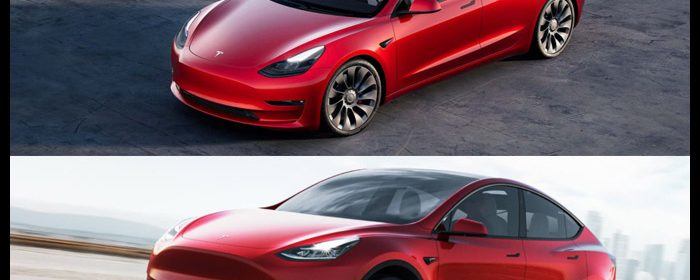NHTSA To Evaluate About 416,000 Tesla Vehicles Over Unexpected Braking

The National Highway Traffic Safety Administration or NHTSA, has opened a Preliminary Evaluation (PE) of a population of about 416,000 Tesla vehicles after it received 354 complaints alleging unexpected brake activation on these vehicles while driving at highway speeds.
The NHTSA’s Office of Defects Investigation (ODI) is evaluating the alleged complaints on 2021-2022 Tesla Model 3 and Model Y vehicles after it received these complaints over the past nine months.
The consumer has often characterized this complaint as “phantom braking” as the unexpectedly applies its brakes while driving at highway speeds while utilizing the advanced driver assistance system (ADAS) features on the vehicles, including adaptive cruise control.
These vehicles are equipped with a suite of ADAS features referred to as Autopilot which Tesla states will allow the vehicle to brake and steer automatically within its lanes.
The complainants reveal that the rapid deceleration can occur without warning, at random, and often repeatedly in a single drive cycle.
The PE was opened to determine the scope and severity of the potential problem and to fully assess the potential safety-related issues. Though the ODI received 354 complaints of unexpected brake activation, there have been no reports of crashes, injuries or fatalities involving these vehicles.
Two weeks ago, luxury electric car maker Tesla had recalled a total of 817,143 vehicles over a seat belt reminder alert that can fail to activate. This recall involved certain 2021-2022 Model S and Model X, 2017-2022 Model 3, and 2020-2022 Model Y vehicles. Tesla will perform an over-the-air (OTA) software update, free of charge, to rectify the issue.
A day before that, the carmaker recalled 53,822 U.S. vehicles because their “Full Self-Driving (Beta)” software lets them roll through stop signs without coming to a complete halt. This involved certain 2016-2022 Model S and Model X cars, 2017-2022 Model 3s, and 2020-2022 Model Y vehicles. Tesla will perform an over-the-air software update that disables the “rolling stop” functionality, free of charge.
Source: Read Full Article
